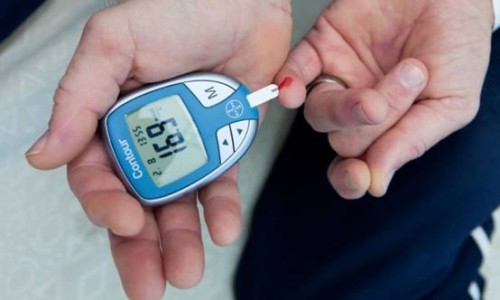If you have diabetes, checking blood sugar can be a significant tool in preventing log-term diabetes complication. Even if you have not been diagnosed of diabetes but there is a doubt, you can always check your blood sugar level at home.
Testing your blood sugar level allows you to manage your diabetes it no matter the time of day. It is important to keep a log of your results. Your healthcare provider will have good picture of their diabetes care plan, when you take these results to them.
While it is important to consult your doctor to stay on top of your diabetes treatment plan, you can also test your blood sugar on your own.

There are few ways to test your blood:
- From your fingertip
The traditional method to check includes pricking your finger with a small, sharp needle (also called lancet), putting a drop on a test strip. Then place this strip into a meter that would show your blood sugar level. You can expect results in next 15-20 seconds.
With some meters, you should be sure the strip code matches the meter code.
Blood sugar meters and strips are easily available at local pharmacy.
Some meters also have feature kits that can show you the average blood sugar level and graphs and charts of your past results.
- Glucose Meters
A device called, continuous glucose monitor (CGM) is a good tool to track your blood sugar levels at home. This FDA-approved system collects readings automatically every 5 minutes. It also helps to identify patterns and trends which can give your consultant a complete view of your diabetes and help you manage your diabetes condition well.
CGM uses a small device placed under the skin of your tummy, which measures the glucose amount in the fluid present in your body. A transmitter on the device then directs the info to a monitor which you can clip on your belt. In case your blood sugar level drops at very low level or high level, it will sound an alarm.
Devices are accessible for children and adults. But you would need a prescription from your specialist to get one.
When to check your blood sugar?
Check your blood sugar level whenever you require information to take decisions. The way you make use of this information is more vital than how often you test.
Often people find it useful to check their when they first get up in the morning and again before going to bed. Some test before and after their meals. Many test after and before exercising.
Testing blood sugar level at different times of the day can give you varied information about how plan is going.
- Testing in the morning, before eating or drinking anything will tell you if you have sufficient insulin in your body to control blood sugar level at night, when you are sleeping.
- Testing before taking meal would help you decide how much food you can consume and how much medicine to take.
- Testing after taking your meals and before sleeping would tell you if you are taking sufficient medicine to cover the meals you have in the day and making the correct diet choices.
- Before doing activities such as exercising would help you ensure blood sugar levels stay close to normal during and after you are done exercising.
- Every time you feel something odd, you may feel like your blood sugar level is unexpectedly increasing or decreasing. But you wouldn’t know for sure without testing. Thus, testing will help eliminate the guesswork, helping you take better decision about the actions you need to take to manage your diabetes.
Who should check their blood sugar levels?
Consult your specialist whether you should be checking your blood sugar level. However, it is recommended for people to check their blood sugar level who:
- are pregnant
- have trouble controlling their blood sugar levels
- are taking insulin
- have ketones because of high level
- have low blood glucose level
Understanding your results
If you blood sugar level is under 100 mg/dl, your blood sugar level is completely normal and may not worry about it.
If your blood sugar level didn’t reach 140 mg/dl for an hour after consuming a high dose of carbohydrates and was below 120 mg/dl for two hours after consuming a high dose of carbohydrates, your blood sugar levels are normal.
The image below describes the blood sugar levels:

